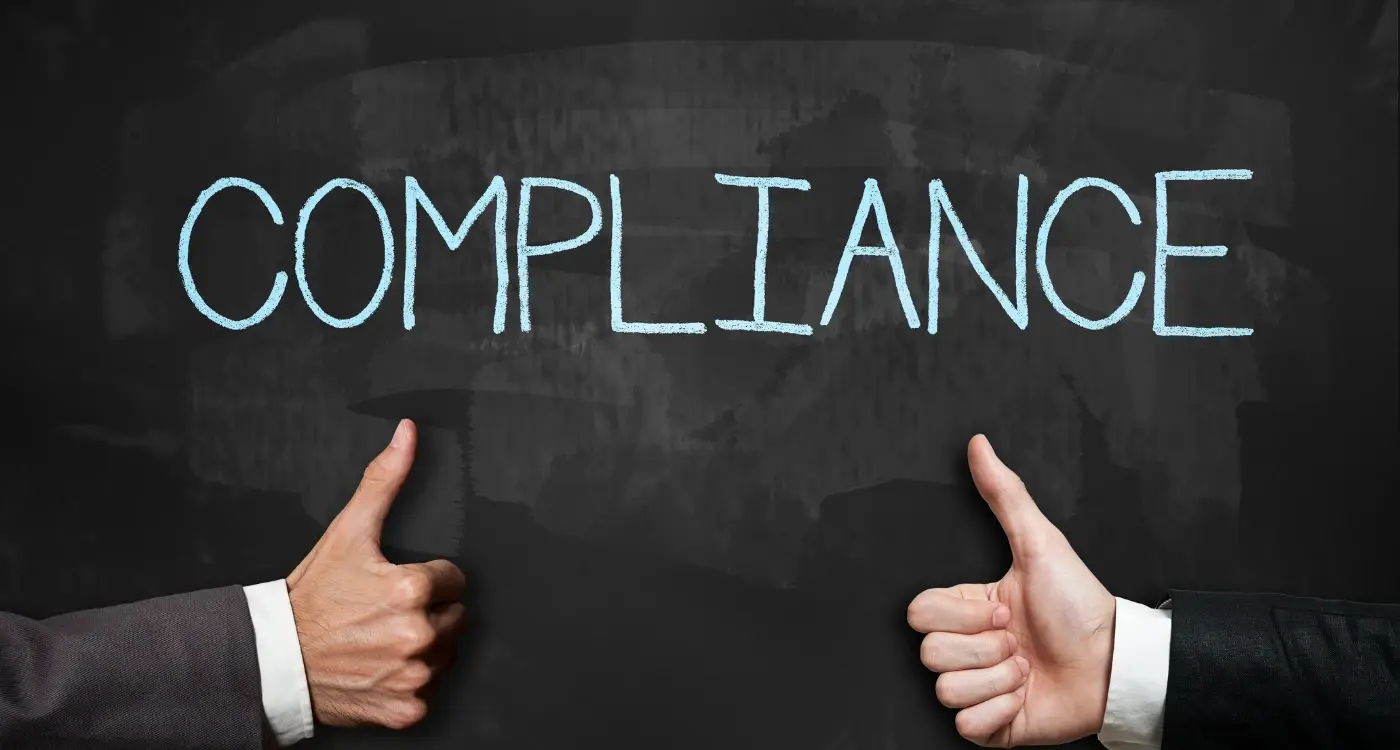Can My Terms of Service Protect Me From Being Sued?
You've built your mobile app, launched it to the world, and suddenly you're lying awake wondering what happens if something goes wrong. What if someone gets hurt using your app? What if there's a data breach? What if a user claims your app damaged their device or caused them financial loss? These worries aren't just paranoia—they're legitimate concerns that every app developer faces, whether you're a solo entrepreneur or part of a large development team.
The mobile app industry moves fast, and with millions of apps competing for attention, the pressure to launch quickly can sometimes overshadow the legal considerations. But here's the thing: legal protection isn't something you can retrofit after problems arise. Once you're facing a lawsuit or legal complaint, it's often too late to put protective measures in place.
Terms of service aren't a magic shield, but they're one of the most accessible tools developers have to limit their legal exposure and set clear expectations with users.
This guide will walk you through exactly what terms of service can and cannot do to protect your mobile app from legal trouble. We'll explore the common risks app developers face, examine real-world examples of how terms of service have worked in practice, and help you understand when additional legal protection might be necessary. By the end, you'll have a clear picture of how to use terms of service as part of a broader strategy to protect your app—and your peace of mind.
What Are Terms Of Service And Why Mobile Apps Need Them
Terms of Service are the legal agreements between you and your app users that set the ground rules for how your app can be used. Think of them as the rulebook for your digital playground—they tell users what they can and can't do, what happens if something goes wrong, and who's responsible for what. Every time someone ticks that little box saying "I agree" when they download your app, they're entering into this contract with you.
Now, you might be wondering why your mobile app needs these terms at all. Can't people just use your app without all this legal paperwork? Well, not really. Without proper Terms of Service, you're leaving yourself wide open to all sorts of problems. Users could misuse your app in ways you never intended, blame you for things that go wrong, or even try to reverse-engineer your code and sell it as their own.
What Terms of Service Typically Cover
Most Terms of Service for mobile apps include several key areas that protect both you and your users:
- How users can and cannot use your app
- What happens to user-generated content
- Your liability limitations if something goes wrong
- Intellectual property rights and ownership
- Privacy and data collection policies
- Payment terms for paid apps or in-app purchases
- How disputes will be resolved
The reality is that Terms of Service have become standard practice across the industry. App stores like Google Play and Apple's App Store often require them for certain types of apps, particularly those that collect user data or offer paid services. Without them, you're not just risking legal trouble—you might not even get your app approved for distribution in the first place.
Common Legal Risks That Mobile App Developers Face
Running a mobile app means you're exposed to risks that didn't exist twenty years ago. Some are obvious, others sneak up on you when you least expect them. The truth is, every successful app eventually faces legal challenges—it's just part of the business.
User data breaches top the list of scary scenarios. One security flaw and suddenly you're dealing with angry users, regulatory fines, and potentially massive lawsuits. Even if the breach wasn't your fault—maybe it was your hosting provider or a third-party service—users will still blame you first.
The Big Four Legal Headaches
- Privacy violations and data protection failures
- Copyright infringement claims from content or code
- User-generated content that breaks laws or harms others
- App malfunctions causing financial or physical damage
Copyright issues catch developers off guard regularly. That innocent stock photo you downloaded? The music track you thought was royalty-free? Someone somewhere might own the rights and want payment. User-generated content creates another minefield—when someone posts something illegal or defamatory on your platform, you could be held responsible.
Then there's the app malfunction risk. What happens if your fitness app gives wrong health advice? Or your navigation app sends someone down a dangerous route? These scenarios might seem far-fetched, but courts don't always see it that way.
Keep detailed records of all third-party content, APIs, and services you use. When legal issues arise, you'll need to prove where everything came from and what permissions you had.
The good news? Most of these risks can be managed with proper legal protection measures, starting with well-written terms of service that set clear boundaries and expectations.
How Terms Of Service Can Limit Your Liability
Terms of service are like a safety net for app developers—they won't catch everything, but they'll stop you from falling too far when things go wrong. I've seen too many developers get caught off guard by legal issues that could have been softened with properly written terms that offer real liability protection.
The main way terms of service protect you is by setting clear boundaries about what users can expect from your app. They limit your responsibility when your app doesn't work perfectly or when users lose data. Without these protections, angry users might try to sue you for much more than you'd expect.
Key Protection Areas
Your terms can shield you from several types of legal problems. They can limit how much money you might have to pay if something goes wrong; they can stop users from taking you to court in expensive locations; and they can prevent group lawsuits where hundreds of users join together against you.
- Damage caps that limit financial compensation
- Jurisdiction clauses that control where legal disputes happen
- Liability exclusions for things like lost profits or business interruption
- User responsibility clauses that put some blame back on the user
- Service availability disclaimers that protect against downtime claims
Real Protection In Practice
Let's say your fitness app crashes during someone's marathon training and they claim it ruined their race preparation. Well-written terms could limit your liability to just refunding their subscription fee rather than paying for their travel costs, training expenses, and emotional distress.
The key is being realistic about what protection you can get. Terms of service work best when they're reasonable and fair—courts don't like one-sided agreements that try to eliminate all developer responsibility. Balance is what makes them legally enforceable.
What Terms Of Service Cannot Protect You From
I hate to be the bearer of bad news, but your mobile app's terms of service aren't a magic shield that protects you from everything. There are quite a few legal situations where your carefully crafted terms won't help you one bit—and knowing what these are could save you from some serious trouble down the line.
The biggest limitation? You can't use terms of service to protect yourself from criminal activity or gross negligence. If your app handles user data carelessly and there's a massive breach because you didn't follow basic security practices, those liability limitations in your terms won't mean much. Courts will look at whether you acted reasonably, not just what your legal documents say.
Consumer Protection Laws Trump Everything
Terms of service also can't override consumer protection laws. In the UK, for example, the Consumer Rights Act sets minimum standards that you simply cannot contract out of. You can't hide behind your terms if your mobile app doesn't work as advertised or if you're being deliberately misleading about what it does.
Data Protection Is Non-Negotiable
GDPR compliance is another area where your terms of service won't save you. Data protection regulations exist independently of any agreements you make with users—you can't just pop a clause in your terms saying "we'll process your data however we want" and expect that to hold up.
Terms of service are a safety net, not a bulletproof vest. They work best when you're already doing things properly.
The reality is that terms of service work best as part of a broader legal strategy. They're brilliant for setting expectations and limiting liability in specific scenarios, but they won't protect you from fundamental legal obligations or poor business practices. Think of them as one layer of protection—not the only layer you need.
Writing Effective Terms Of Service For Mobile Apps
Right, so you know you need terms of service—but where do you actually start? After working with hundreds of app developers over the years, I can tell you that most people get this completely wrong. They either copy someone else's terms word-for-word (dangerous!) or they write something so vague it's practically useless.
Let's talk about what makes terms of service actually work for your app. First up: specificity matters. Your terms need to clearly explain what your app does, what data you collect, and what users can and cannot do. Don't write "users must not misuse the service"—that means nothing. Instead, spell out exactly what counts as misuse for your particular app.
Key Elements Your Terms Must Include
Every mobile app's terms should cover these basics, but remember—this isn't a tick-box exercise. Each section needs to be tailored to your specific app:
- User responsibilities and prohibited activities
- Your liability limitations (the legal protection bit)
- How disputes will be resolved
- What happens when users break the rules
- How you can update the terms
- Age restrictions and parental consent requirements
The Language Question
Here's something that trips up loads of developers: should your terms sound like they were written by a lawyer or a human being? The answer is somewhere in the middle. You need legally sound language that actually protects you, but users also need to understand what they're agreeing to. Courts are increasingly looking at whether terms are clear and fair—not just whether they're technically correct.
My advice? Get a lawyer to write the first draft, then work with them to make it readable. Yes, it costs more upfront, but it's worth every penny when you're not scrambling to fix problems later.
Real Examples Of Terms Of Service In Action
I've seen plenty of mobile app developers learn about terms of service the hard way—through actual legal disputes. Let me share some real cases that show how these documents work in practice, because understanding what's happened before helps you prepare for what might come next.
One of the most famous cases involved a fitness tracking app where users claimed their personal data was shared without permission. The company's terms of service clearly stated that anonymised fitness data could be used for research purposes. When users tried to sue, the court found that the terms were clear and users had agreed to them during signup. The mobile app company avoided millions in damages because their legal protection was solid.
When Terms of Service Saved the Day
Here are some situations where strong terms helped mobile app developers:
- A gaming app faced claims about in-app purchases—their liability limitation clauses prevented users from claiming damages beyond the actual purchase amount
- A social media app dealt with content disputes by pointing to their user-generated content clauses
- A delivery app avoided responsibility for third-party merchant issues through clear disclaimers
When They Didn't Work
Terms aren't magic shields though. I've seen apps lose cases because their terms were buried in tiny text, written in confusing legal language, or tried to exclude things they legally couldn't. One photo-sharing app lost a privacy case because their terms contradicted their privacy policy—users got confused about what they were actually agreeing to.
Make sure your terms of service match your privacy policy and other legal documents. Contradictions between documents can make your legal protection worthless in court.
The key takeaway? Well-written, clearly presented terms can provide real mobile app legal protection, but they need to be done properly to work when you need them most.
When You Need More Than Just Terms Of Service
Let me be straight with you—terms of service are brilliant, but they're not a magic shield that protects you from everything. There are times when you'll need to go beyond basic terms and conditions to properly protect your mobile app business.
If your app handles sensitive user data, processes payments, or operates in heavily regulated industries like healthcare or finance, you're going to need additional legal protection. Terms of service alone won't cut it when you're dealing with GDPR compliance, PCI DSS standards, or medical data regulations.
Additional Legal Documents You Might Need
- Privacy Policy (separate from your terms)
- Data Processing Agreements
- Cookie Policy
- End User Licence Agreements (EULAs)
- Acceptable Use Policies
- Community Guidelines
High-risk apps—think social platforms, dating apps, or anything involving user-generated content—need extra layers of protection. You might need specific clauses about content moderation, age verification, or reporting mechanisms for user management that go well beyond standard terms of service.
Insurance is another consideration that many app developers overlook. Professional indemnity insurance, cyber liability coverage, and general business insurance can protect you from claims that your terms of service simply cannot address.
When Legal Advice Becomes Non-Negotiable
If you're handling children's data, processing substantial amounts of personal information, or your app could potentially cause physical harm (fitness apps, navigation apps), you need proper legal counsel. Don't try to wing it with template terms of service—the stakes are too high and the regulations too complex to navigate alone.
Conclusion
After building mobile apps for over eight years, I've seen countless developers learn this lesson the hard way—terms of service are your first line of defence, but they're not a magic shield. They can protect you from many common legal headaches and limit your liability in specific situations, but they won't save you from everything.
Think of your terms of service as one tool in a bigger toolkit. They work best when they're clearly written, properly displayed in your app, and legally sound. But you'll still need proper insurance, data protection measures, and sometimes legal advice to cover the gaps. No single document can protect you from gross negligence, criminal activity, or wilful misconduct—nor should it.
The mobile app world moves fast, and legal risks change just as quickly. What worked five years ago might not hold up today. That's why reviewing your terms of service regularly isn't just smart—it's necessary. New features mean new risks, and new risks need new protections.
Here's what I tell every client: don't treat terms of service as an afterthought you copy from another app. Invest the time and money to get them right from the start. Your future self will thank you when you're not dealing with expensive legal problems that proper terms could have prevented. Good legal protection isn't about avoiding all risk—it's about managing risk intelligently so you can focus on what you do best: building great apps.
Share this
Subscribe To Our Learning Centre
You May Also Like
These Related Guides

What Are the Legal Requirements for Apps Built with Vibe Coding?

Can I Ban Users Through My Terms Of Service?



